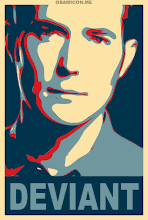From Ross Gelbspan on
Grist.
One frequently overlooked potential casualty of accelerating climate change maybe our tradition of democracy (corrupted as it already is). When governmentshave been confronted by breakdowns, they have frequently resorted to totalitarian measures to keep order in the face of chaos. It is not hard to imagine a state of emergency morphing into a much longer state of siege, especially since heat-trapping carbon dioxide stays in the atmosphere for about 100 years.
Add the escalating squeeze on our oil supplies, which could intensify our meanest instincts, and you have the ingredients for a long period of repression and conflict.
Ominously, this plays into the scenario, thoughtfully explored by Naomi Klein, that the community of multinational corporations will seize on the coming catastrophes to elbow aside governments as agents of rescue and reconstruction -- but only for communities that can afford to pay. This dark vision implies the increasing insulation of the world's wealthy minority from the rest of humanity -- buying protection for their fortressed communities from the Halliburtons, Bechtels, and Blackwaters of the world while the majority of the poor are left to scramble for survival among the ruins.
The only antidote to that kind of future is a revitalization of government -- an elevation of public mission above private interest and an end to the free-market fundamentalism that has blinded much of the American public with its mindless belief in the divine power of markets. In short, it requires a revival of a system of participatory democracy that reflects our collective values far more accurately than the corporate state into which we have slid.
Unfortunately, we seem to be living in an age of historical amnesia. One wonders whether our institutional memory still recalls the impulses that gave rise to our constitution -- or whether we have substituted a belief in efficiency, economic rationalization, and profit maximization for our traditional pursuit of a finely calibrated balance between individual liberties and social justice.
For the full article, click
here.
Labels: climate change, global warming, Grist, Naomi Klein, Ross Gelbspan, tipping point




